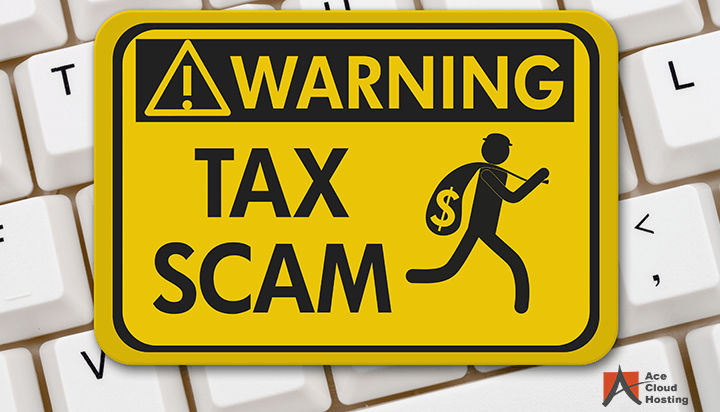Tax Season: Avoiding the Dangers of Ghost Tax Preparers
Tax season can be stressful enough without the added worry of a ghost tax preparer stealing your refund. A ghost tax preparer is someone who promises a large tax refund, but instead files a false return, pockets your money, and may even steal your identity. Experts warn that these fraudsters often vanish once the fraudulent return is filed, leaving you to face the consequences of filing a false return.
Table of Contents

How Ghost Tax Preparer Scams Work
A ghost tax preparer works by preparing your tax return without signing it. These scammers might lure you in by inflating your deductions and credits, making your refund seem much larger than it actually is. They often charge a fee based on the size of your refund, meaning the larger they make it, the more they profit. Once the return is filed, they could disappear, leaving you responsible for any mistakes or fraud. If the IRS catches the error, you’ll have to repay the refund, plus interest and penalties. Worse, since you provided your personal information, they could also steal your identity.
How to Avoid Falling Victim to a Ghost Tax Preparer
To ensure your tax preparer is legitimate, it’s essential to be cautious of unsolicited offers. If someone promises unusually large refunds or claims to know secret tax tricks, it’s a major red flag. Avoid tax services that approach you out of the blue, especially if they offer unusually low rates.
Seek Recommendations
Ask trusted friends or family members for recommendations on a reliable tax preparer. A tax professional with a long-standing relationship with someone you trust is likely a safer choice.
Do Your Research
While researching online can help, it’s not foolproof. Be wary of services that only exist online without a physical business address or phone number. Additionally, if a service charges fees based on a percentage of your refund or operates only on a cash basis, this is another warning sign. A professional tax preparer should charge a flat or hourly rate and provide receipts for services rendered.
Request a PTIN
Always ask your tax preparer for their Preparer Tax Identification Number (PTIN). This number is required by law, and you can verify it with the IRS. If they refuse or can’t provide one, it’s best to look elsewhere.
Review Your Tax Return Before Filing
Regardless of who prepares your return, it’s crucial to carefully review all forms before signing them. Make sure all information is accurate and request a copy of the return for your records. If your refund is directly deposited, double-check the bank and routing numbers. Finally, ensure that your tax preparer signs the return and includes their contact details. If they refuse, it’s a red flag.
What to Do If You Fall for a Ghost Tax Preparer Scam
If you find out that you’ve used a ghost tax preparer and your return contains false information, you must take action. First, contact the IRS and file a complaint using Form 14157. If the preparer fraudulently filed your return, you’ll need to submit Form 14157-A. You’re also responsible for correcting the errors by submitting an amended return using Form 1040-X.
Even though you may have used a dishonest tax preparer, you are still responsible for your tax return’s accuracy. The IRS may allow you to work out a payment plan or waive penalties if you can prove you weren’t aware of the fraud. Contact your state tax agency as well to report any mistakes on their forms.
By following these steps and working with a trusted tax professional, you can avoid the risks of ghost tax preparers and ensure your tax filings are accurate and secure.
Important Tax Deadlines for 2025
It’s crucial to keep track of tax deadlines to avoid penalties and ensure timely filing. Here’s a quick guide to important tax dates for 2025:
- Jan. 27 – The tax filing season begins, and the IRS starts accepting tax returns.
- By Jan. 31 – Employers must provide W-2 forms, and forms 1099-NEC, 1099-K, and 1099-INT become available.
- By April 15 – File your return and pay federal taxes. You can also request an extension for filing, but taxes owed must still be paid. This is also the last day to make contributions to your HSA and IRA. Estimated taxes for the first quarter (Jan. 1 – March 31) are due.
- By June 16 – Estimated taxes for the second quarter (April 1 – May 31) are due.
- By June 15 – Taxpayers living abroad must file their return.
- By Sept. 15 – Estimated taxes for the third quarter (June 1 – Aug. 31) are due.
- By Oct. 15 – File your return if you requested an extension. Keep in mind, missing this deadline could result in penalties, and your tax return will be considered late.
The IRS has extended the federal tax filing deadline to May 1 (or later) for several states with declared disaster areas. However, remember that state filing deadlines can differ. If you file an extension, it only extends the time to submit your return, not the time to pay any taxes owed.

